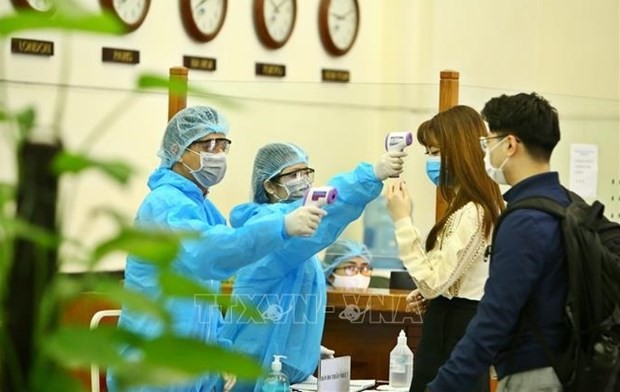
Asymptomatic COVID-19 patients, close contacts can work during quarantine: MoH's proposal
Latest
 |
| Employees have their temperature checked before entering the workplace. (Photo: VNA) |
According to the proposal, which has been submitted to the National Committee for COVID-19 Prevention and Control for consideration, asymptomatic COVID-19 patients, who are undergoing quarantine for seven days and their RT-RCR test result remains positive for the coronavirus, can work remotely and be allowed to take care of COVID-19 patients in their families, accommodation establishments or COVID-19 treatment facilities in accordance with their assigned tasks and their professional skills.
However, F0 persons who are arranged to work at COVID-19 treatment establishments have to implement protective measures, regularly monitor their health, take SARS-CoV-2 tests, the ministry said, adding that they won’t be allowed to care for or contact with immunocompromised or high-risk patients, including those with underlying diseases, pregnant women and people over 50.
They are permitted to travel by personal vehicle directly from their quarantined facilities to the workplaces and vice versa, but they must strictly comply with the MoH’s 5K messages, especially wearing a mask, maintaining a safe distance, taking preventive measures and not being allowed to have close contact with people around.
The MoH also suggested that F1 cases who have not been fully vaccinated or have not been inoculated against COVID-19 are permitted to participate in urgent affairs of their units and localities through remote or in-person work.
In case of in-person working, there should be a working area designated for them, ensuring a safe distance and that ventilation is adequate to reduce infection risk.
Like F0 cases, F1 people are allowed to travel by personal vehicle and comply with the MoH’s preventive measures, the ministry said.
They have to undergo PCR or antigen tests on the fifth day from the last exposure date or as soon as they have symptoms of COVID-19 infection for early treatment in line with the MoH’s regulations.

















